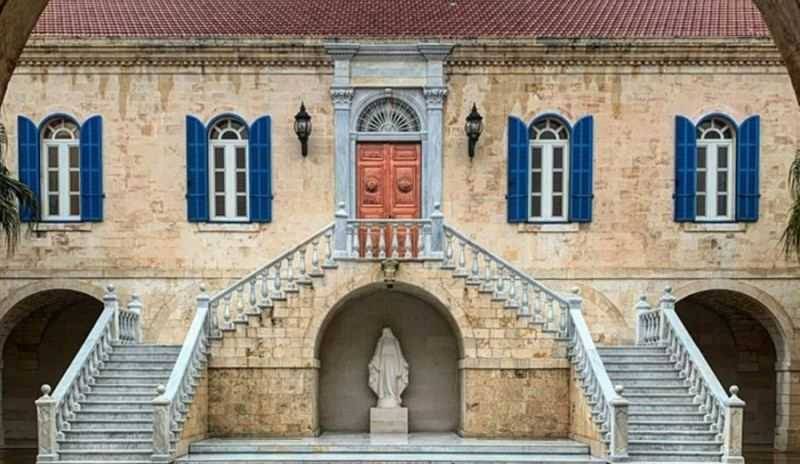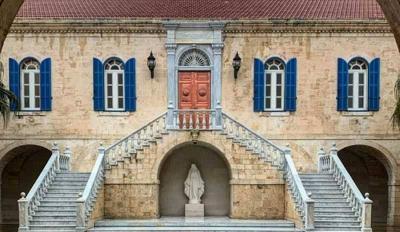The absence of political reactions to the statement issued by the Maronite Bishops' Council during its monthly meeting headed by Maronite Patriarch Bechara Rai does not imply a lack of commentary, particularly from political and religious leaderships within the Sunni community. They believe the patriarch's statement should have explicitly held accountable those obstructing the election of a president, rather than broadly addressing the issue, especially regarding the Resistance axis, represented by Hezbollah, thus absolving themselves of the responsibility of failing to elect a president.
Although Sunni references want to distance themselves from engaging in a debate with the Maronite Bishops' Council—preferring to communicate their grievances to Bkirki quietly due to Lebanon's dire situation—they criticize the bishops for treating the community's partners uniformly, without distinguishing between those facilitating and those hindering the presidential election. This criticism is particularly pointed given that the bishops' statement coincided with a message from the Grand Mufti of the Lebanese Republic, Sheikh Abdul Latif Deryan, to the Lebanese people on the occasion of Isra and Mi'raj, where he stated emphatically that "the President of the Republic is the key to solving all our issues."
The Sunni leadership expresses concern about the bishops' assertion that negotiations concerning border demarcation remain the president's prerogative, arguing that negotiation is not on the table. They assert that an implementation mechanism with guarantees from the United Nations must be established to comply with UN Resolution 1701, which the Lebanese government commits to, amidst ongoing violations by Israel and Hezbollah's need to respond to such aggressions. They emphasize that if the statement on negotiations is accurate, can it be logical that a Muslim president is untrusted with the country during an extended presidential vacancy?
Furthermore, if the statement is valid, how can we delay discussions on implementing Resolution 1701 amid Lebanon's current struggles and escalating military confrontations between Hezbollah and Israel? Why not urge the government to fulfill this obligation to prevent the country from sliding into an expanded war, as incited by Israel, and given the messages—bordering on threats—from European envoys to Beirut?
They also suggest that there is nothing preventing Christian leaders from convening a collective meeting in Bkirki to draft a political memorandum stating clearly what they desire and what they do not want.
The Sunni references highlight that the unrest is not limited to Christians but extends to the Sunni community, which complains about the political imbalance due to the reluctance of Sunni leaders to participate in parliamentary elections, leading to the absence of a significant Sunni authority in parliament that leads a substantial bloc, unlike other sects. This absence has fueled tensions between Sunnis and Hezbollah, even if the latter remains silent, as it has publicly shown itself in the past when Hezbollah gave a green light to then-President Michel Aoun and his heir, Deputy Gibran Bassil, to politically "abuse" former Prime Minister Saad Hariri, who decided to suspend political activity.
They assert their differentiation from Hezbollah from a standpoint of organizing dissent to reduce sectarian tensions, also noting common points with Christian opposition leaders in criticizing Hezbollah's role, which thus far hinders the re-establishment of state authority and monopolizes the war and peace decision-making process.
In this context, a prominent Christian opposition source claims that the bishops' statement primarily reflects the escalation of the Christian dispute with Hezbollah. It would have been better for them to clarify their position to prevent misunderstandings, especially since Sunni leaders prioritize the election of a president. Sunni deputies in parliament participated in all electoral sessions and did not obstruct the quorum during second-round elections, despite the absence of a powerful Sunni reference in parliament capable of ensuring political balance, unlike the current scenario.
The opposing source, who wished to remain unnamed, states that the unrest within the Christian community stems from a widespread belief that Hezbollah is orchestrating a well-planned scheme to dominate the state. He tells "Asharq Al-Awsat" that he decided to turn his back on the government when it made an independent decision to confront Israel while supporting Hamas in Gaza.
He points out that he supports the Maronite bishops' outreach to the international community, holding it accountable for the erosion of the Lebanese entity and pushing Lebanon into a trade-off with Hezbollah by confining the presidency to its candidate in exchange for implementing Resolution 1701 under its terms. He argues that seasonal dialogues held sporadically between the party and Bkirki’s media spokesperson Walid Gharios, under the auspices of MP Fares Hekal Khazen, are futile as long as Hezbollah maintains its rigid stance and disregards the concerns of its partners in the state.




